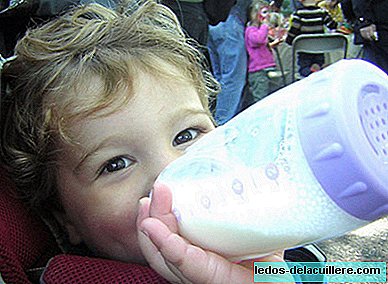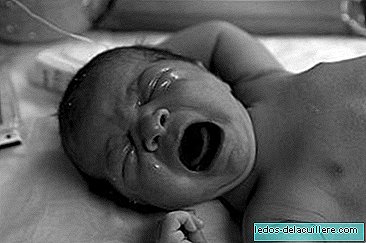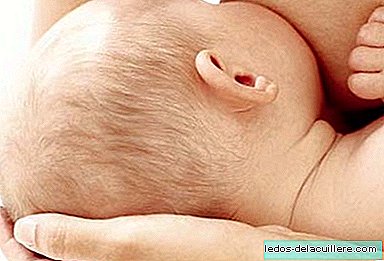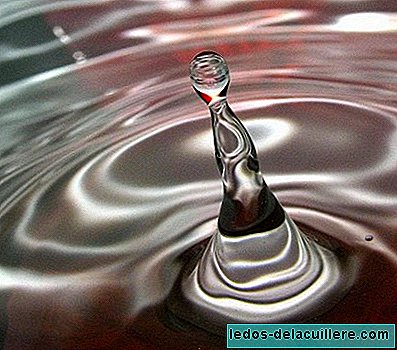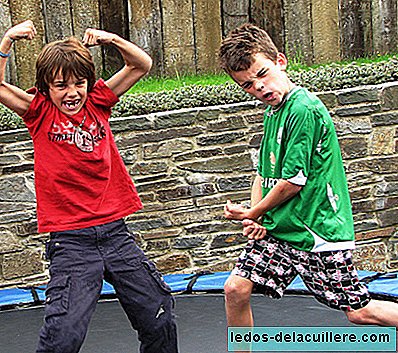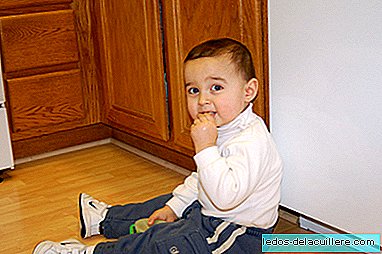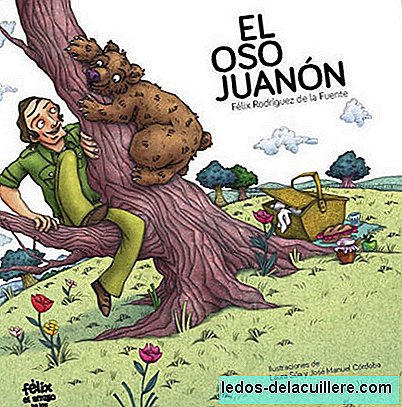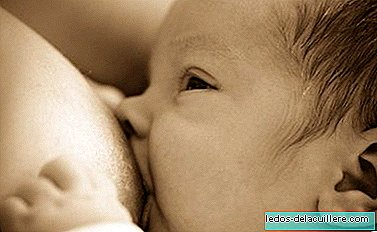
Today in Babies and more we interview Dr. Kika Baeza, who is a doctor and also an international consultant certified in breastfeeding, IBLCL, whom I have the good fortune to know both in his professional and personal facet, since our children have long been friends.
Kika Baeza is the mother of five children, and precisely the experience of her care and breastfeeding of her first child, who was born with a very serious health problem, prompted her to become a lactation consultant and add to her knowledge as a doctor the specific training in breastfeeding she found herself missing in her studies and in her experience as a mother to be able to help other women.
You're a doctor and mother, does that change your perspective on parenting?
Yes, at the beginning it caused me many difficulties. When you have been convinced in the faculty of how good episiotomies are and how similar is breast milk to breast milk, you have to unlearn many things before learning new ones.
Did your training as a doctor include enough content and hours of breastfeeding training?
In the medical degree they gave us 1 hour of information about breastfeeding, and it was basically a chemical comparison between human and cow's milk. Anatomy of the breast, just enough to diagnose cancer. And breastfeeding and parenting, zero.
What made you decide to become a lactation consultant?
I asked if someone could help me put him to the chest, but nobody knew. Javier lived 24 days, and I spent them with a pump instead of having him in my arms.
My first child was born with a very serious heart disease. In Spain they told us that at birth we would simply have to let him die, so we went to the US. There he was operated on life or death the day after he was born, and he lived. He was admitted for fifteen days and the doctors insisted that I pump the milk, which was very important for Javier. So I spent the day stuck to the breast pump.
When I learned that there was a profession dedicated to breastfeeding, I thought I would like to help any mother miss what I missed.
What does this training, courses, studies and practices consist of to obtain certification as an international lactation consultant IBCLC?
Training is practical first; it requires certifying many hundreds of hours of support for mothers, not in groups but of one-on-one support, with counseling and breastfeeding techniques. Depending on which professional field you come from, the practical hours required are between 900 and 4000. Theoretical training is a specific number of hours of specific breastfeeding courses. Once you have accumulated theory and practice hours, then you take a very rigorous theoretical exam. If you pass, you get the IBCLC Certified Breastfeeding Consultant title. It is the only officially recognized title internationally. The International Association of Breastfeeding Consultants (ILCA) is a consultative body of WHO and UNICEF. The title must be revalidated every five years, that is, you have to re-examine to keep the knowledge fresh and also updated.
What would you advise a woman who wants to breastfeed?
For a mother who wants to breastfeed, my main advice is to be surrounded by women who have given or breastfeed and who enjoy raising their children.
If a mother has started breastfeeding and has problems, what should she do?
First, go to a support group. The most frequent problems are the lack of support in the environment and a whole series of false myths that undermine women's confidence. If your difficulty exceeds the group's capacity, then you should go to an IBCLC.
Can you briefly explain the reasons why it is better for a baby to be breastfed?
Ugh ... how many folios do you want me to fill in? Rather, I would answer the following: drinking formula milk damages the baby's health and hinders the development of his immune system. Babies who breastfeed are normal, that is, they are healthy and develop properly.
In which cases is breastfeeding really unfeasible?
In very few. It would be absolutely unfeasible if the baby is born with galactosemia, a very rare disease. It is also impossible if the mother has nonexistence of mammary glandular tissue, although I have never seen it.
If the mother is receiving chemotherapy or radioactive treatments, although in these cases the baby could have already been drinking milk from her mother and could possibly resume breastfeeding once the aggressive treatment is over.
Are breastfeeding figures consistent in Spain with the true nature of this?
Unfortunately, breastfeeding figures are quite low in our country, although they are starting to rise.
How could breastfeeding rates be improved?
Well, it seems to me that there are two basic points: that professionals are trained well is the first. Now there are more mothers who want to breastfeed and who are aware of the importance of doing so, but end up abandoning due to lack of professional support. Who can withstand months and months of pain, mastitis after mastitis, baby who is hungry ...? Almost nobody. But if you go to your family doctor / midwife / gine / pediatrician it helps you to solve the cracks or the difficulty, your breastfeeding continues. That does not usually happen.
Breastfeeding should be a compulsory subject in both medicine and nursing. How can doctors and nurses not be familiar with the food process of the human being? The second point is the media. They should gradually normalize breastfeeding.
Breastfeeding is what is done, formulating is what is done when there is no other choice, and that behind the bibs of milk extracted and behind the donated milk. That is, the formula is the FOURTH option.
The lack of training in lactation of health professionals is undoubtedly one of the causes of the low rate of successful and prolonged breastfeeding in Spain.
Having a personal story like that of Dr. Kika Baeza helps us to be more aware of these shortcomings and to appreciate doctors more than if they bet on breastfeeding and help mothers to get it.
Our interview with Dr. Kika Baeza will soon have a second part in which we will talk about natural contraceptive methods and especially indicated in breastfeeding.
We hope that the interviews we give you from Babies and more May they help you to learn more about caring for your children and we will continue working in this direction.
In Babies and more | "We must totally change our production system." Interview with Carlos González, "The events that happen in the primal stage are the most important in life." Interview with Enrique Blay (III), "I became a gynecologist with the clear idea of attending home deliveries." Interview with Dr. Emilio Santos (VI), "Some disabled people dare to have children," interviews the author of "Adapted Maternity," "It is a myth to say that the woman who breastfeeds cannot take medication." Interview with José María Paricio (II)


